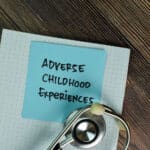People with substance use disorder face a stigma that is strong and nationwide. Others dismiss their very presence with sweeping, cruel generalizations, such as ‘junkies’ or ‘drunks’. This social stigma surrounding addiction needs to be seriously addressed, as it only contributes to the proliferation.
Alcoholism is the only disease you can get yelled at for having.
– Mitch Hedberg
Stigma is essentially disapproval based on characteristics. Alcoholics and drug addicts are met with disapproval of and/or thought to be less-than-equal on an everyday basis. Words like ‘junkie’, ‘drunk’, ‘stoner’, ‘tweaker’, or ‘crackhead’ all stem from the social stigma of addiction. Dismissal due to substance addiction is a stigma that countless addicted Americans face. Worse yet is the criminalization of addiction.
Statistics on the Stigma
Six years ago, the Johns Hopkins Bloomberg School of Public Health conducted a study on the stigma and discrimination that substance addicts face. The aim was to compare “current public attitudes about drug addiction with attitudes about mental illness.” It turns out most people “hold significantly more negative views toward persons with drug addiction compared to those with mental illness.”
Here are some significant findings of the study:
- 90% of respondents were unwilling to have a substance addict marry into their families, compared with 59% being unwilling to have someone with mental illness marry in.
- 22% of respondents were willing to work with a substance addict, compared to 62% regarding someone with mental illness.
- 54% of respondents agreed that landlords should be able to deny housing to a substance addict, compared to 15% regarding those with mental illness.
- 64% of respondents agreed that employment should be denied to substance addicts, compared to 25% regarding those with mental illness.
- 3 out of 10 respondents believed that recovery from substance addiction is impossible.
Perhaps the most interesting thing about this study is that substance addiction itself IS a mental illness. Addiction is a disease that, unfortunately, as Mr. Hedberg said, you can be ‘yelled at’ for having. Addicts aren’t just yelled at, though. Others dismiss, ignore, marginalize, and blame them for their behavior. That is the stigma, and it needs to go away.
What Addiction Stigma Leads To
Considering substance addiction a moral and/or criminal issue only makes the stigma worse. The individual American needs to begin viewing addiction as the mental illness it is, not as a crime or a lifestyle choice. Sure, perhaps choices led to the addiction, but once it takes hold, it’s as fierce a mental illness as any other.
The stigma of addiction also makes it more difficult for an addict seeking help. The fear of being dismissed or ignored or, well, stigmatized, often prevents addicts from speaking up and getting help.
This becomes a more major issue when one learns that approximately 1 in 10 addicts in America will ever seek professional treatment. In a country with tens of millions of addicts, that’s a whole lot of people who need help. Perhaps worse yet, about 60% of addicts in America that do realize they need help will never get it.
How to Erase the Stigma
Frankly, it starts with you. Erasing the stigma of addiction happens on a personal level. Realize that substance addicts are humans too, and that addiction itself is a fierce disease. Biases in the media don’t help at all; it often portrays addicts as addled misfits. This is rarely the case in real life. Public education is the most surefire way to end the stigma.
America needs more public service announcements, more blogs like this one, more word-of-mouth, and more open conversations about the disease of addiction. Instituting policy changes will help stop the criminalization of addiction and start treating it.
Granite Recovery Centers knows that addiction is not your fault. For those seeking help, we offer a multitude of customized programs for addicts seeking help. We do not harbor any stigmas. The first step toward recovery is calling us now at 1-855-598-4118. We have pros standing by to help you win the battle against addiction, while also winning the battle against the stigma it carries.










